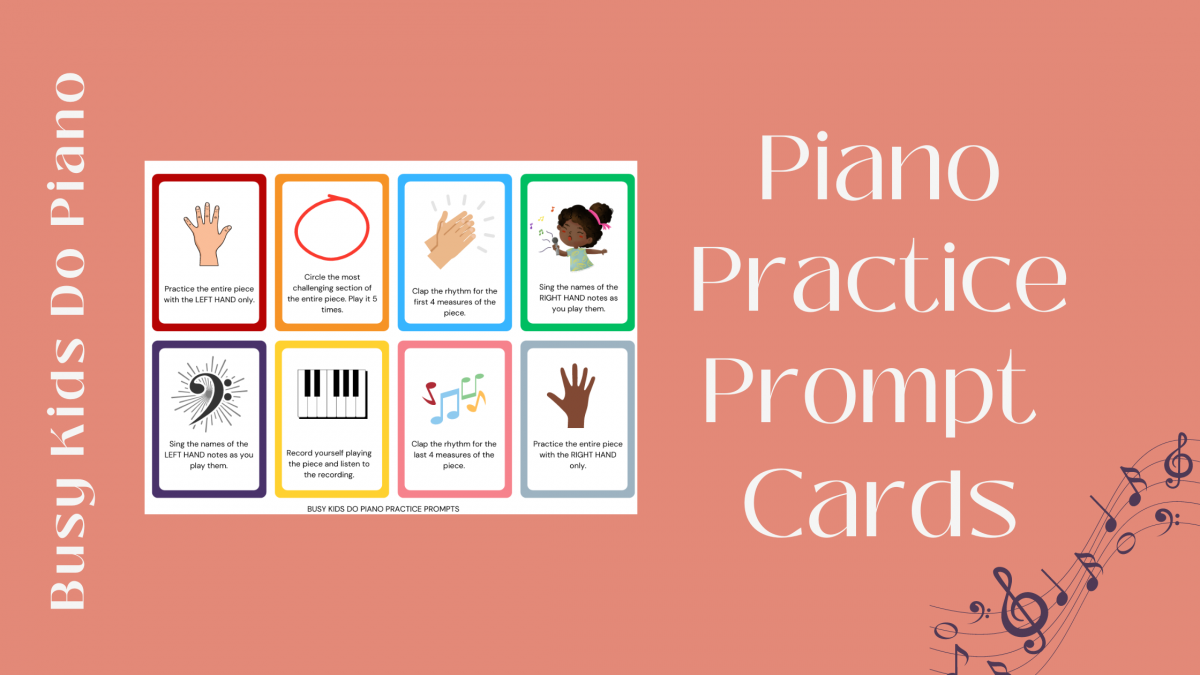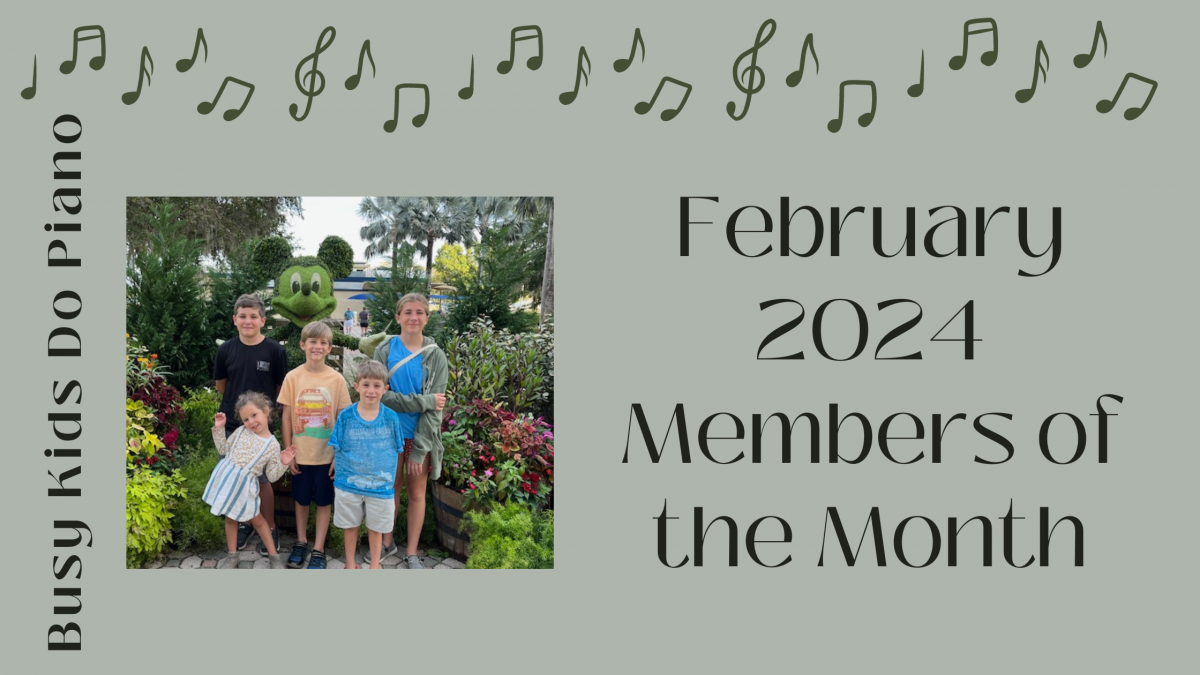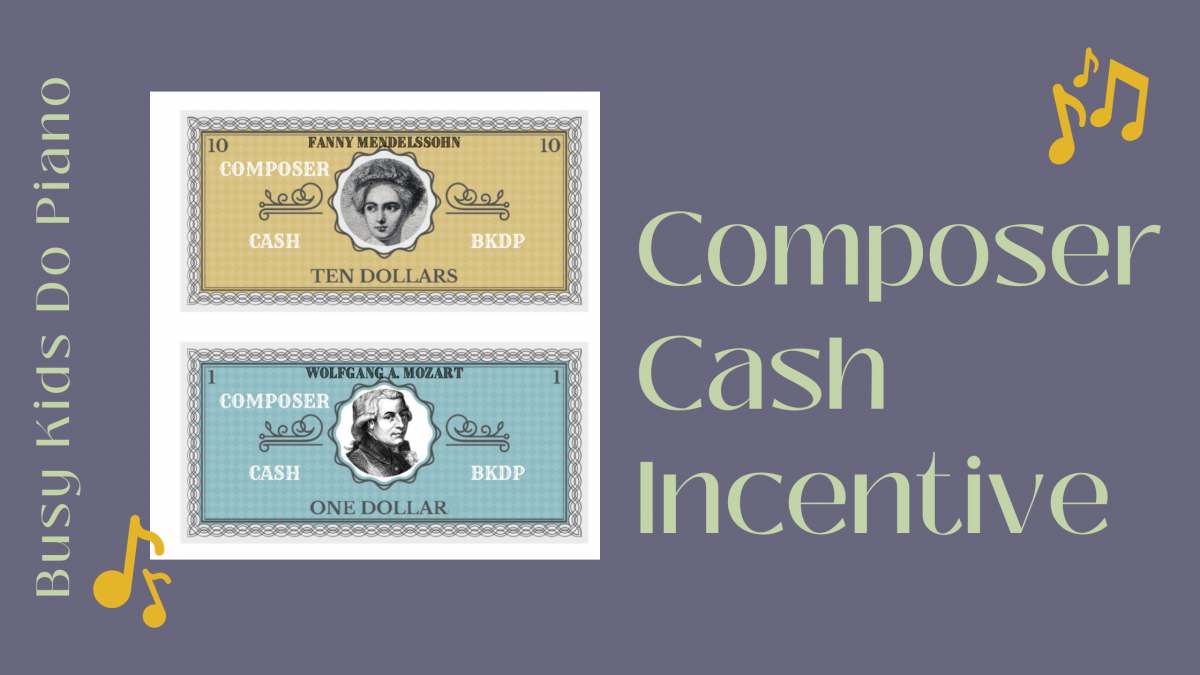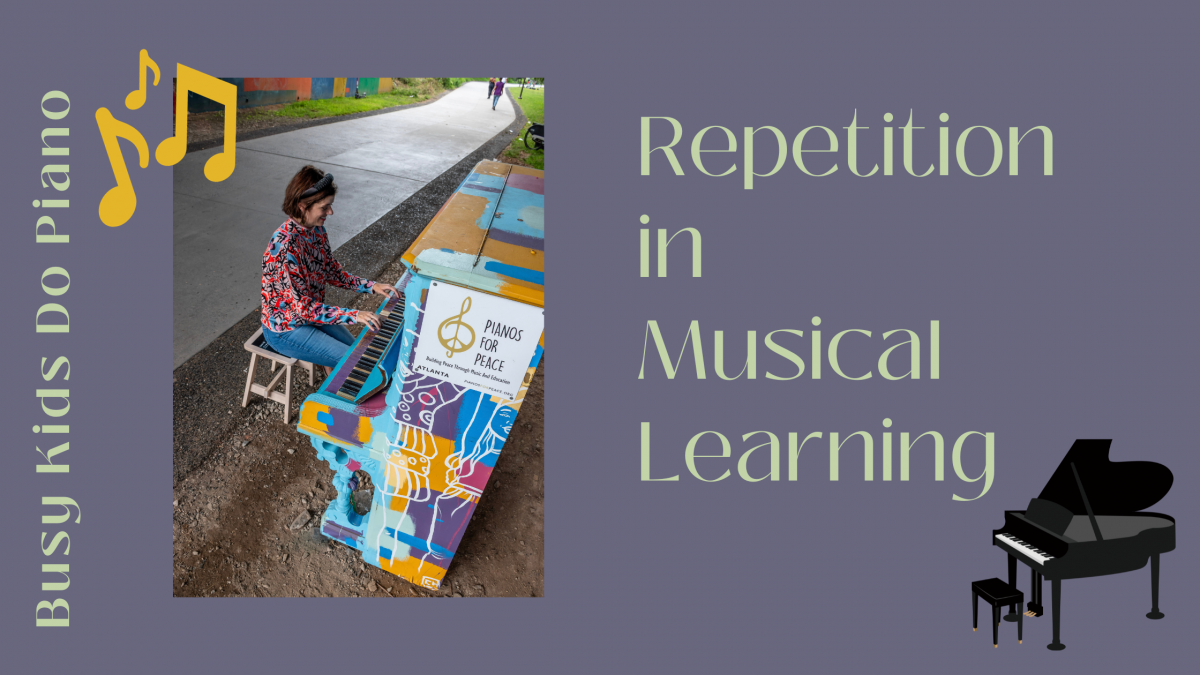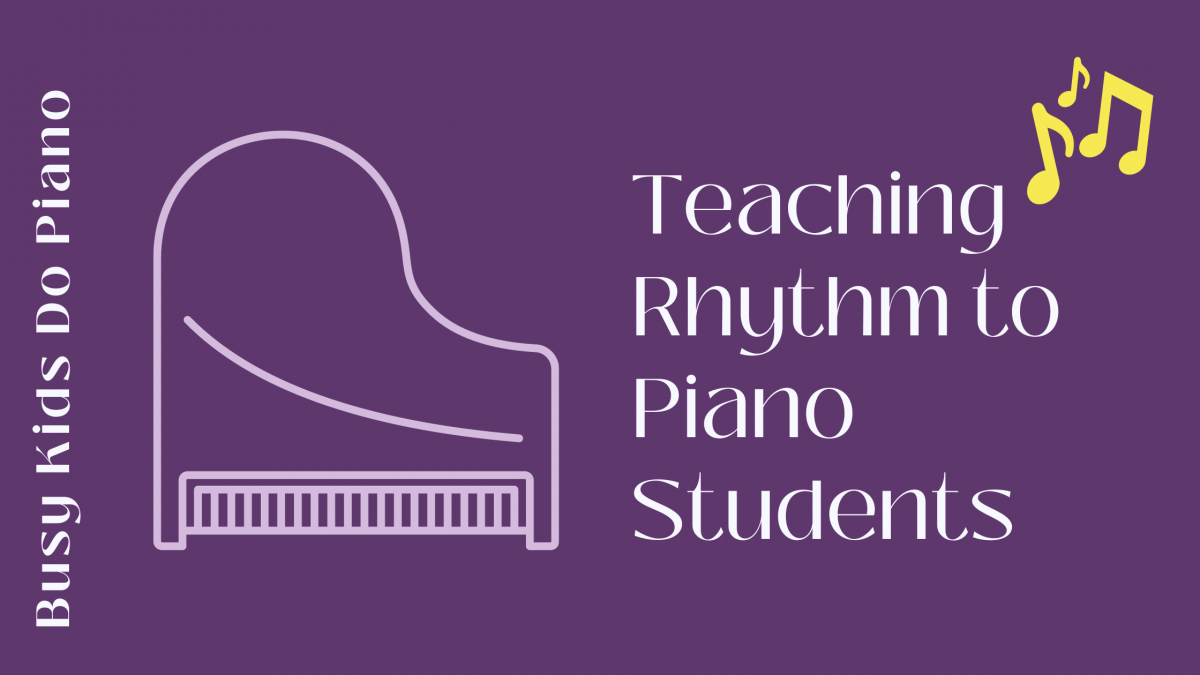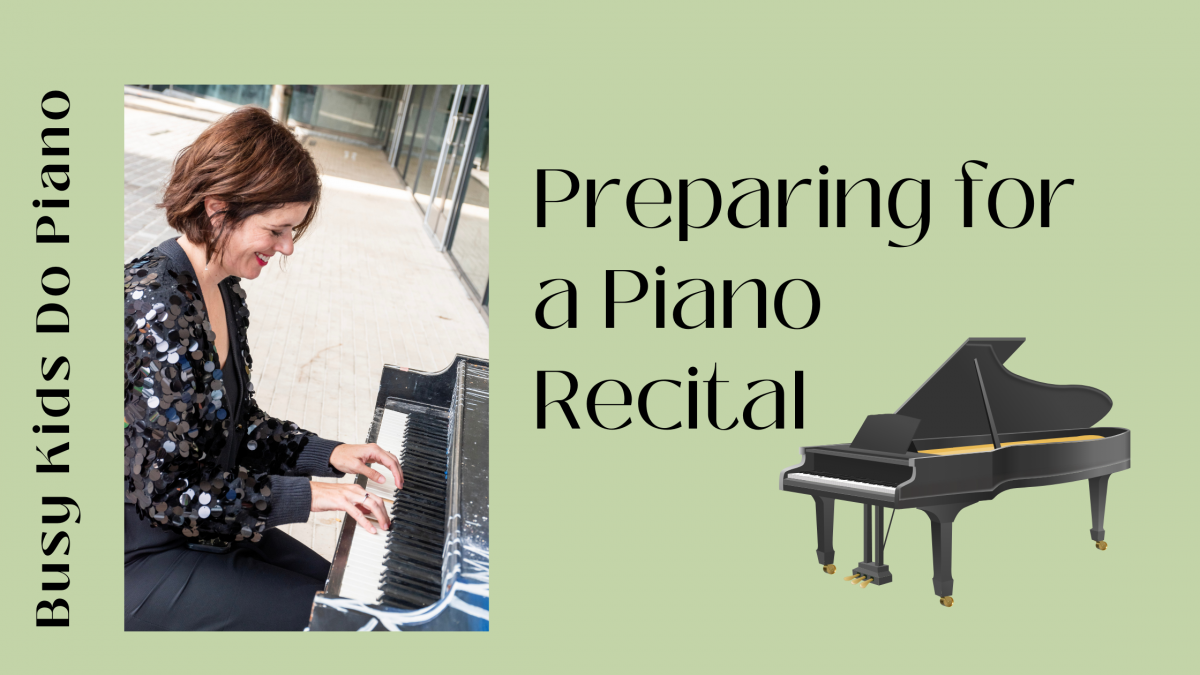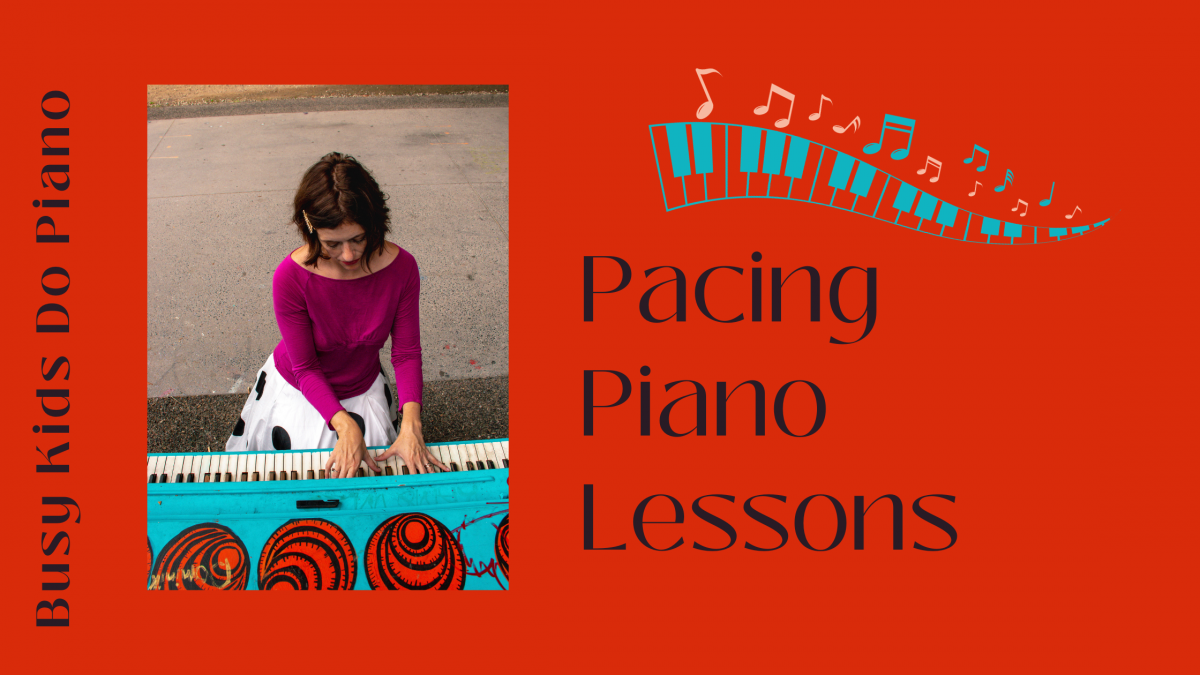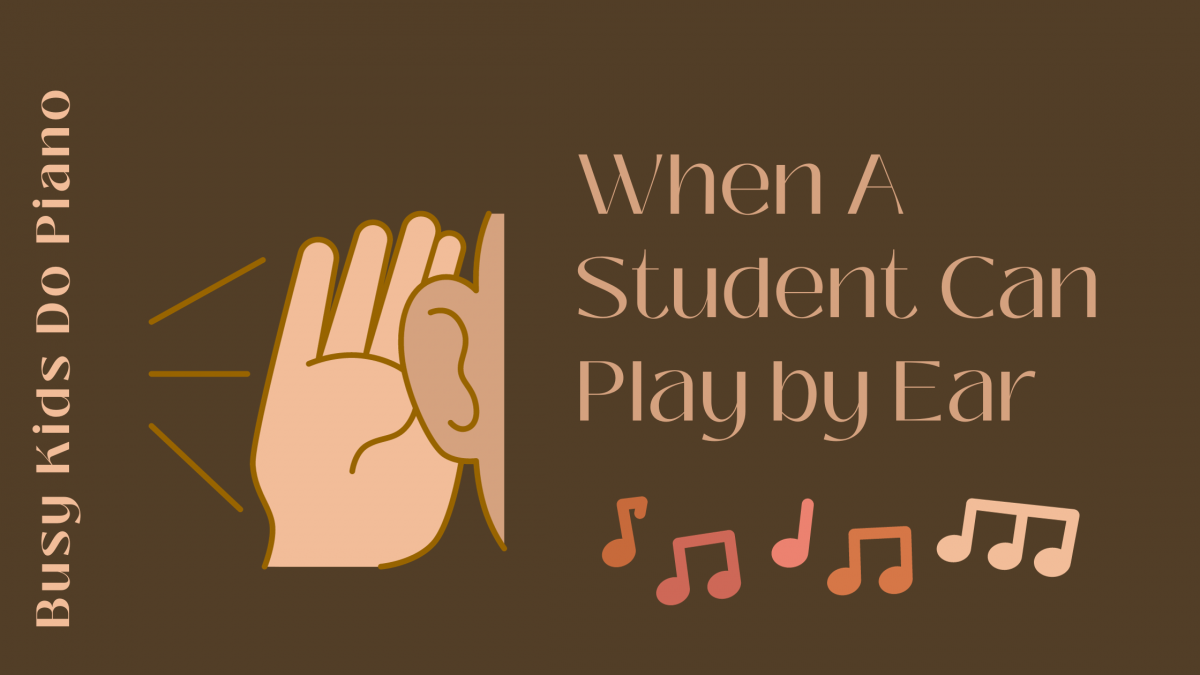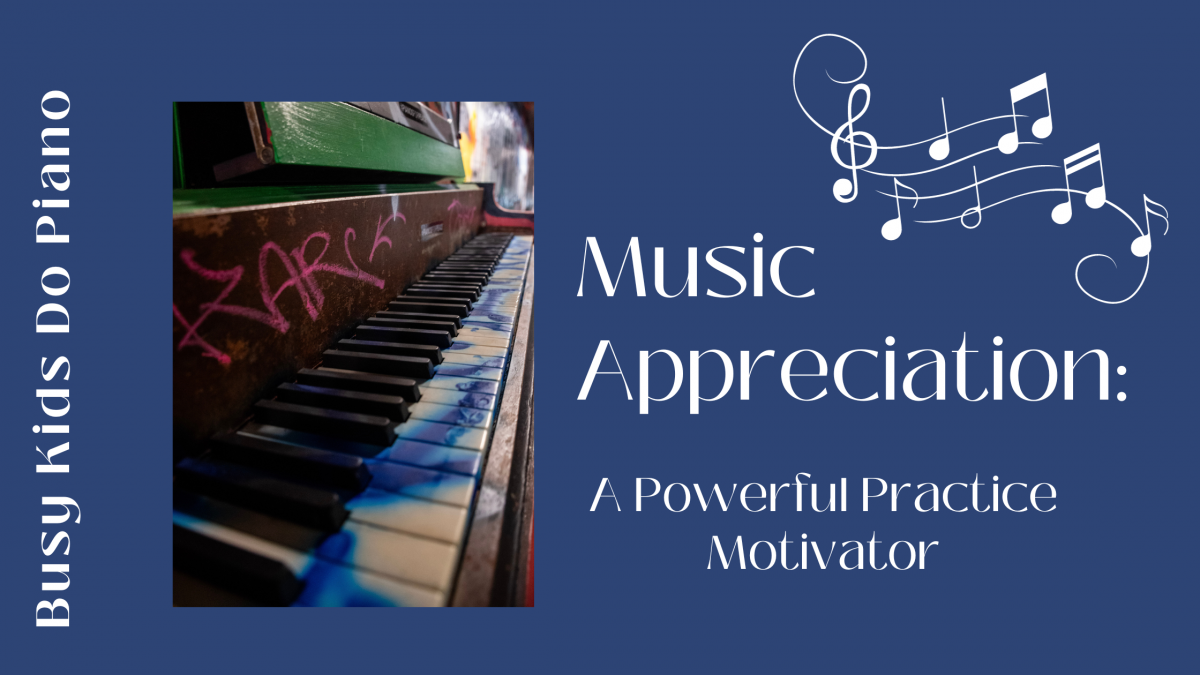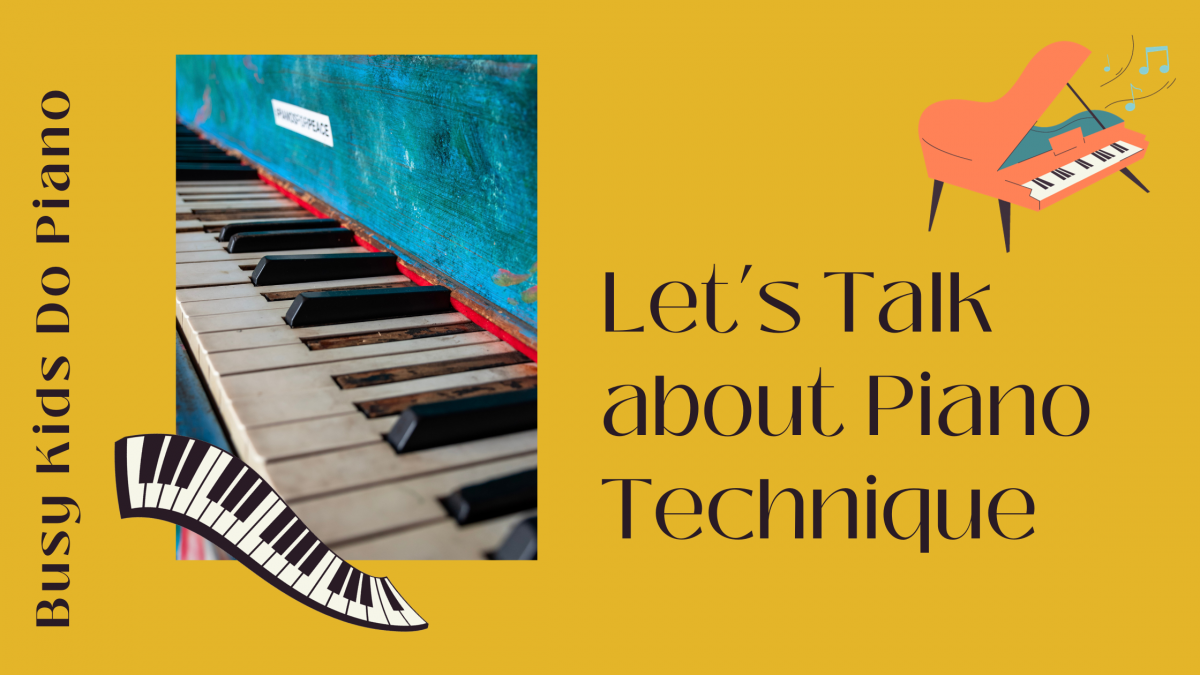Continue reading “Piano Practice Prompt Cards (or…the PICK 3 Piano Practice Game!)”
Tag: practicing tips
February 2024 Members of the Month
When asked what she loves most about Busy Kids Do Piano, mom Megan states, “I love the fact that it is very affordable, and I can use it for all my children. I also love the fact that it grows with my children, and I can do it from home and fit the practices into our day.” Megan, you’re speaking to one of our main goals with the program…that it works for a wide range of ages and abilities and can grow with your students. Continue reading “February 2024 Members of the Month”
Composer Cash Incentive
There’s always something nostalgic and appealing about play-money, isn’t there? I grew up playing Monopoly and LIFE, and I remember loving a nice stack of pastel-colored cash. It felt so empowering to earn and spend my money, making grown-up types of deals with high dollar values. I bet you could tell me the color of the $500 bill in Monopoly, right? That’s how impactful these kinds of games are to us as kids!
This month, I wanted to create that feeling for my students. The download contains printable Composer Cash, featuring a different composer on the various bills, as well as a reward chart. But the rest of the challenge is up to you, and provides a great opportunity for you to connect with your student in a meaningful way to discuss not only their piano goals, but also what kinds of incentives mean the most to them. Continue reading “Composer Cash Incentive”
Repetition in Musical Learning
Maybe you’ve heard the expression, “Repetition is the mother of all learning.”
There’s a reason for this. Repetition improves speed, increases confidence and creates neural pathways in the brain that commit that skill into memory. Once we’ve been down a pathway before, it’s easier to find the second and third and fourth time around!
Obviously, repetition is an important tool in musical learning. When my piano students are working on a piece of music, I might ask them to play a section “one more time” to help them become more fluent in a skill.
But sometimes, I can tell a student is getting frustrated or even bored if I ask him to repeat a passage of his piano piece again and again. Continue reading “Repetition in Musical Learning”
Teaching Rhythm to Piano Students
Whether I’m having my first in-person piano lesson with a new student or a student is logging in to view their first piano lesson in my online program, that student will be learning the same concept: rhythm.
Teaching rhythm is SUCH an important part of being a piano teacher. There’s an underlying theoretical — really, mathematical — understanding that needs to happen. But, I also have to help my students “feel” rhythm. Continue reading “Teaching Rhythm to Piano Students”
Preparing for A Piano Recital
Your student is preparing for a piano recital. You’re probably thinking, “Well, she’ll have to practice a lot!”
That’s sort of true. However, getting ready for a piano recital involves a bit more of a strategy than just additional practice. Continue reading “Preparing for A Piano Recital”
Pacing Piano Lessons: Is My Student Ready for the Next Lesson?
One thing that is unique to online piano lessons is that while I teach all the concepts, music and theory in the program, I do rely on parents to help in pacing the program for the student. I have parent guides and checklists to help with this, but I want parents to feel completely comfortable when it comes to answering the question, “Is my child ready for the next piano lesson?” Continue reading “Pacing Piano Lessons: Is My Student Ready for the Next Lesson?”
When a Student Can Play By Ear…
Sometimes students will come to me for piano lessons with a strong ability to play by ear in place already. It could be that the student has spent time listening to favorite songs on iTunes and picking out those melodies on the piano. Alternatively, a student might hear me play a piece of music she is working on in a lesson and, rather than reading the music, rely on her memory of what the piece sounds like in order to learn it.
It can be difficult to figure out how to approach teaching a student like this piano.
Do we completely ignore theory and technique and musical scores in favor of just learning pop hits by ear?
Do we start from the very beginning and scrap all the pop music in favor of meticulous theory and music-reading? Continue reading “When a Student Can Play By Ear…”
Piano Practice Motivator: Music Appreciation
Parents of piano students are always asking me for my best “piano practice motivator” ideas.
My number one go-to?
Music appreciation.
In this livecast, I’m going to give you TONS of actionable ways that you can help your student to develop an understanding of why learning to play the piano is a privilege. Continue reading “Piano Practice Motivator: Music Appreciation”
Let’s Talk About Piano Technique.
Technique is not a very exciting word. I am envisioning your eyes glazing over at the computer screen as you read the words “piano technique”.
Believe me, if I could come up with a sexier word to introduce this topic, I would!
Even though it sounds rather boring, piano technique is super duper important. And there is SO MUCH to it. Continue reading “Let’s Talk About Piano Technique.”

